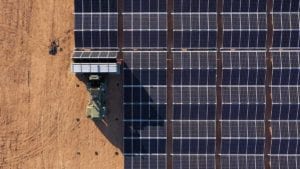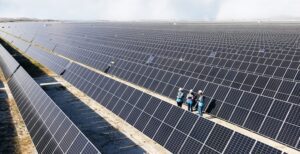A new global report has provided a stark reminder of Australia’s deep-rooted climate denial problem, connecting some of Australia’s most powerful business and industry lobby groups with the Coalition federal government.
The research from e UK-based thinktank InfluenceMap lists the world’s most impactful climate policy opponents. And while the vast majority in the top ranks come from the US, Australia takes out four spots in the top 30, including our very own Minerals Council in the top 10 (number 8).
The Minerals Council of Australia’s role as a local climate policy speed hump, and strong ties with the Coalition government, are well recognised in Australia and on RenewEconomy.
But to see it listed in an international report as among the top 10 of “opponents of climate policy globally” – brought to our attention here by Graham Readfearn – is a sobering reminder that Australia’s problems are the world’s problems when it comes to climate change.
As InfluenceMap puts it, the top 10 list – in which seven organisations are US-based (and one each from Australia, Canada and Japan) – “reflects the extent to which US lobbyists have stoked, harnessed, and guided the Trump Administration’s deregulatory agenda to undermine climate policy progress since 2016.”
Much the same could be said about Australia, and the influence of the MCA, the Australia Petroleum Production and Exploration Association (at number 15 on the global list), the Business Council of Australia (17), and the Australian Industry Group (30), on the federal Coalition in the crucial policy period since 2013.
The Minerals Council, however – having gone to the effort of lacquering ScoMo’s infamous lump of coal – deserves special mention.
As Giles Parkinson wrote here in 2018 – when former PM Malcolm Turnbull was being rolled by his own party, there has long been “a rotating door between the MCA and the Coalition government.”
In one direction, former Liberal Minister Helen Coonan was in May this year was appointed chair of the MCA, becoming its only female board member.
And in the other, former deputy CEO of the MCA, John Kunkel, was appointed as Scott Morrison’s chief of staff and continues to serve in that role.
Following him into ScoMo’s inner sanctum in June this year came ex Minerals Council CEO, Brendan Pearson, who was promoted to senior adviser to Morrison from the office of the minister for finance, Mathias Cormann.
Patrick Gibbons, a former advisor to then environment minister Greg Hunt jumped to the MCA where he is now climate and energy policy lead.
And Gibbons predecessor, Sid Marris, who was head of climate policy at the MCA for nearly nine years, became Malcolm Turnbull’s senior climate and energy advisor when he was PM, but is now back within the bosom of the MCA as head of strategy and innovation.
Little wonder Morrison told the UN this week that Australia would not lift its climate targets, as the country agreed to do when signing up to Paris. After all, that is what the Minerals Council would wish.






